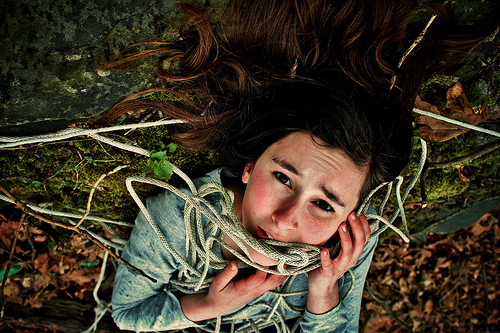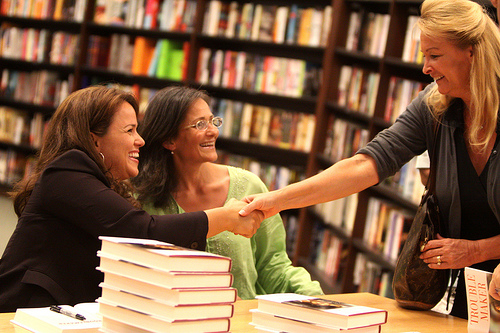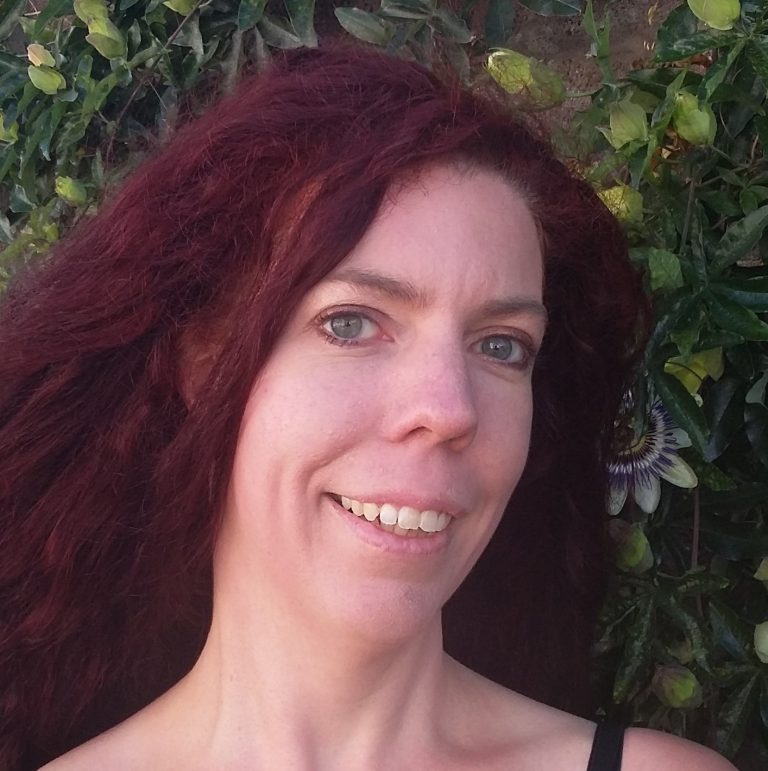The Key to a Successful Novel Lies in Genre
If you asked me what is the most important thing an author needs to know to ensure they will have the best chance of success with their novel, I could sum it up in one word: genre.
You have to know what genre you are writing in. And, on top of that, you have to do your homework to be completely “fluent” in that genre. That means learning to identify the markers for that genre.
Readers have specific expectations that they bring to a genre. So that means you, the author, must identify your niche genre, write to those expectations, and be sure that all marketing materials, including cover design, perfectly reflect that genre.
That might seem like a no-brainer, but, sadly, I see a lot of writers clueless about the genre they are writing in and haven’t done their homework.
Let me give you an example.
Here are the elements of Southern Gothic stories:
- Voodoo and spirituality
- An air of mystery, and/or the supernatural
- Grotesque history, especially focusing on the South’s history of slavery
- Social anxieties represented in racial tension
- Deeply flawed, disturbing or eccentric characters
- isolation and marginalization
- violence and crime
- sense of place
- freakishness and the grotesque
- destitution and decay
- oppression and discriminat
Some Southern Gothic authors include Flannery O’Connor, Harper Lee, Truman Capote, Tennessee Williams, Carson McCullers. You have to know not just the markers of a genre but the great authors who’ve mastered the genre. Then you need to study those authors.
According to Oprah’s book club, Southern Gothic literature relies heavily on imagery and symbolism. It is common in Southern Gothic literature, to find innocence surrounded by cruelty and corruption. “When southern gothic authors examine the human condition, they see the potential to do harm. Morality is in question for many characters. A major theme for southern gothic writers hinges on innocence and the innocent’s place in the world— where they are often asked to act as redeemer.”
These are very specific characteristics for a specific genre. If you are going to write Southern Gothic, you need to be sure your story aligns with these elements.
Hunt for Genres That Sell Well
You don’t want to write in a genre that no one wants to read, do you?
The aim in hunting genres is to help you find a niche genre to write in that you would enjoy but that also has great sales potential. And the first step in hunting down genre is to understand what it is and, more importantly, how Amazon defines and categorizes genre.
Since most authors see their biggest sales on Amazon, you need to know how to work with Amazon’s search engines so your book can come up at the top of the search engine results.
It’s all about discoverability. And you’ll hear me repeat this over and over: you can’t just write a great book and publish it hoping it will be discovered. You need to optimize your book for discovery. That’s a twofold targeting strategy. Take my free email Amazon Success course (click on the icon on the side of the blog’s home page). Really, it’s free. And you’ll learn all the strategy you need to succeed!
On the one hand, you want to write your book so that it fits that best-selling subgenre that doesn’t have too much competition. On the other hand, you need to know all the essentials to creating the perfect product page so that Amazon’s search engines will grab your book and put it at the tops of the results when potential customers type in their search words.
The first thing you need to do is choose a genre that sells big, so you can get started brainstorming your plot, setting, title, and cover ideas—and then get writing that novel. Once you are busy writing, to fit into your niche so your book will appeal to your target audience, you’ll be getting to work on all these other SEO details, so that when your novel is ready to publish, you will be armed with all the tactics needed for success.
First we need to understand what genre is and how online sites like Amazon deal with it.
What is genre? It’s a way to classify the type of book you are writing. Amazon defines your books by categories and subcategories. But it’s all genre—a way to define your book so that potential customers can find it.
Conversely, classifying your novel in a specific genre means you are targeting it to very specific customers or readers who are looking for that kind of book to buy. So it’s important to be able to not just state what genre your novel fits—you also need to write to that audience, publishing a book that meets reader expectations.
When you upload your novel or nonfiction book on Amazon, you get to pick 2 categories to assign to it. There are BISAC categories for all books: Book Industry Standards and Communications (BISAC) categories are used by the book-selling industry to help identify and group books by their subject matter. Publishers use this. Like any product, your book needs to fit a category.
These codes are used to properly “shelve” your title at retailers. Think of them as your subjects or genre listings for bookstores and libraries. The Book Industry Study Group (BISG) reviews the list each year to remove outdated codes, add new ones, merge redundant codes, and update terminology to keep up with the times. For example, a unique code for New Adult was only added in the past year as a direct result of a boom in the genre and a need for better categorization
Currently, there are over 3,000 subjects and they can be very specific!
Drilling down to the most specific and appropriate subject ensures your title will be placed in the best possible category on retailer sites. Not only will this help customers find what they want to read and bring your title to the forefront, it will also increase your title’s chances for higher rankings.
When you pick your BISAC codes for your novel, the first choice should be the one that best fits, as that’s the main or first one that will determine your book’s category (and some sites only allow you to pick one). Pick two fiction categories that are specific (don’t choose Fiction/Mystery/General and Fiction/Mystery/Detective for example).
Subgenres: within a genre you’ll find subgenres. Some book genres have dozens. In romance you have paranormal, YA, romantic suspense, historic romance, erotic, etc. There may be sub-subgenres under those. You could have YA paranormal romance, or Victorian Historical romance. Each subgenre will have its own market and supply and demand.
When you look at the genres listed in Amazon, you’ll see the many subgenres as well. You can click on these and note how many books are listed for that category (search engine results). The more of the Amazon best-seller lists you can top, the more visible your book will be to potential customers. And by targeting genre, you’ll have a better chance at getting atop those lists than if you just tag your book with general keywords.
If you just list your book under the genre Romance, or Mystery, or Thriller, you are going to be competing with hundreds of thousands of other books. If you only use your general category for your keywords, you won’t get discovered. If you don’t specifically target a genre and a subgenre and list and market it online to target your niche market of readers, you won’t get discovered.
Discoverability is the key word. You can’t sell if you don’t get discovered. If your books don’t come up at the top of the search lists. When hunting for a best-selling niche genre, you need to check your competitors and make a list of categories their books fall under.
You may not feel comfortable with the idea of categorizing your novel in one clear, specific slot. I resisted this for years. I wrote novels that crossed genres. My psychological mysteries were also women’s fiction or literary fiction. This posed a serious problem for me. My many agents, who loved my books, decried how they just couldn’t sell them because publishers couldn’t easily categorize them. One of my novels was with Penguin’s pub board for four months. My agent was sure they’d buy the novel, but they ended up turning it down. Their reason? The senior editor said, “We love her book, but we just don’t know where to place it in our lineup. It just doesn’t fit anywhere.”
I wish thirty years ago I knew what I know now. I would have spared myself decades of misery and disappointment if only I had known about targeting genre.
I wanted to write my books, in my style. I wasn’t willing to “compromise.” That’s how I saw it. I didn’t look at my writing as producing a commodity for customers, and until I did, I could not sell my books. I finally had to concede that the only way I was going to sell big with my novels was to target genre—write novels that fit in a very specific and easily identifiable genre. I hope to save you the heartache and frustration I went through by taking you step by step through this process of targeting genre for big sales.
So … when you hunt for that best-selling genre you hope to write in, and as you consider various possibilities …
Ask: Can you break down that category or genre any further?
How many books are competing in that category?
Are very many of those novels selling really well?
The more specifically your novel can fit into a subgenre, the better chance it will be discovered and sell well. So take the time to do your homework and pick a genre that’s perfect for your story, then write to satisfy the readers of that genre.
Feature Photo by Fausto Marqués on Unsplash












This was a very interesting article. I particularly related to what you had to say about your work not fitting into a specific genre. My book doesn’t either but fortunately my publisher, and outlets (Amazon etc.,) have listed it in the Fantasy genre which is a good compromise. So far, sluggish sales, but then the book was only published in 2019, and the first sequel is under production, so patience is the key I guess.
Yeah, there is a huge problem with discoverability if you don’t target a specific big-selling niche (sub) genre. There is too much competition if you go with general categories (I teach all about this in my targeting genre course).
I am following KM Weiland and got to your useful link of choosing the right genre for novel writing. Thank you
Hi Susanne.
Please can you confirm (or not) my summarised understanding of the labelling aspects detailed in your post:
– BISAC categories are more akin to a Dewey library classification and relate to a wholesaler/retailer’s purchase and stocking of printed books.
– Amazon genre/subgenre listings are matched to category keywords and relate to an author’s marketing tactics according to consumer sales segmentation.
So the two will have some overlap, but don’t have to match at the more detailed level?
Thank you for any needed clarifications.
Yeah, you get to choose two categories for your book, and those align with the library system. Amazon has it’s own convoluted and complex system of categories (they make up all kinds of categories that only show up down a product page if the product ranks high enough on that list). Of course there is overlap. The category of Romance will be found in both places, but an Amazon category of “Paranormal Shape-Shifting Fiction” (or the like) won’t be offered as a BISAC category. That’s why it’s helpful to find best sellers similar to your book and look at those “hidden categories” listed on product pages, then use them as keywords. Hope that makes sense.
Yes, just what I was after. Thank you, Susanne. I find your blog posts very useful. They go into more depth than many others.
You can sort genre all you want, but no one, anywhere, has ever given me a good reason to waste my precious time with self-published books. The first thing I want to know is who your publisher is.
Hmm, such an enlightened attitude. I spent years turning up my nose at grocery-store coffee, marching with my head up (driving, really) for my precious upscale urban bean hole – and my designer beans-custom-roasted coffee…and then the world went to hell in a hand-basket and I had to crawl into a shell like a turtle and my upscale coffee hole fell off the edge of the Earth. If I wanted to sip a cuppa-java to ease my misery, I had to (gasp) settle for grocery-store coffee…and what a shock that was. Damn brew was richly colored, deeply-hued, fragrant and delightfully pungent, seducing my senses and taste alike, and kept me awake for the entire binge-season of Law&Order re-runs and a few Netflix specials to boot. Don’t miss my upscale urban bean hole one bit.
So, how about you get off your high-horse and pick up something from a self-pub slush file and give it a good once-over…who knows, you might even enjoy it. For a long time now, the big publishers have been churning out dispirited pulp junk. Really, get adventurous…after all, this pandemic does not show any promise of letting up…
I think your comment is unhelpful, to say the least. There are some extreme good self published books out there and some very poor traditionally published work; I know, I’ve had the misfortune to purchase one or two in my time. There is now a whole group of authors who once were published by the big houses who have now gone independent. Indeed, some independent authors are now getting nominated for prestigious awards. Quite frankly, it doesn’t matter to most authors where they get their work published as long as it’s out there for their readers.
I’m an independent author because I value my independence. When I write a book, I have complete control and I’m not beholding to a outside person. My loyal readers like my work and that’s it.
Shall we have less generalisation and more helpful comments?